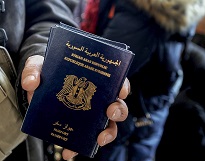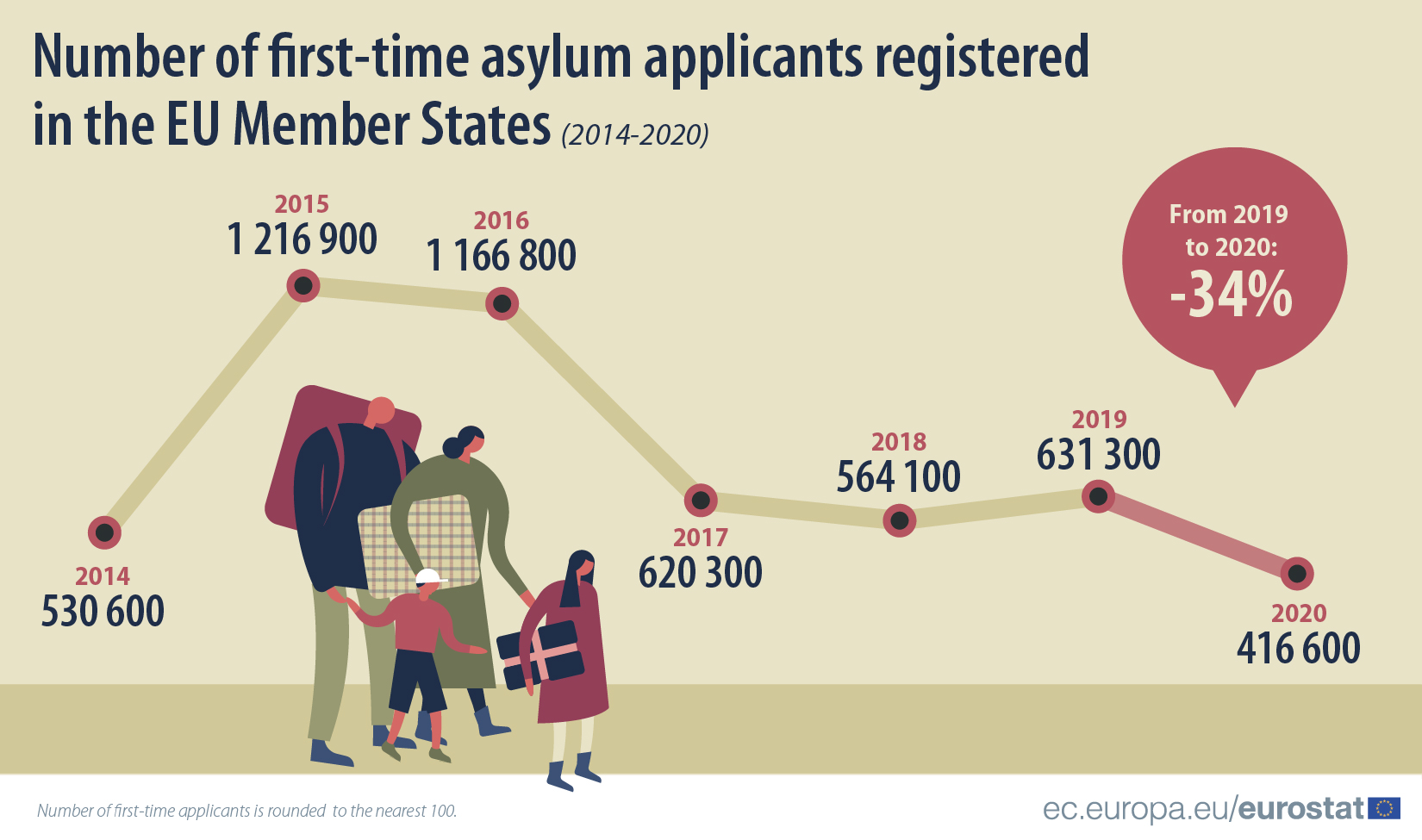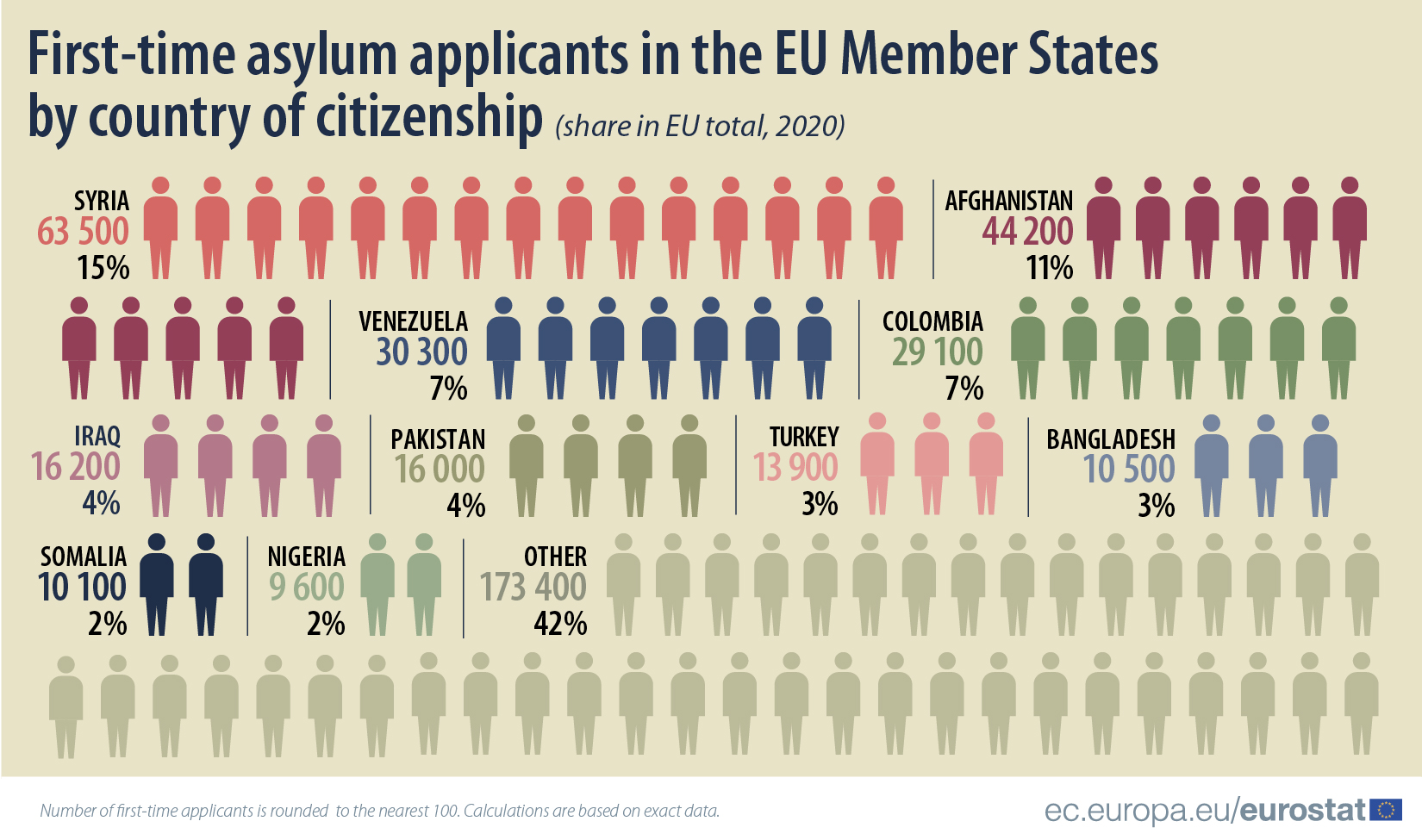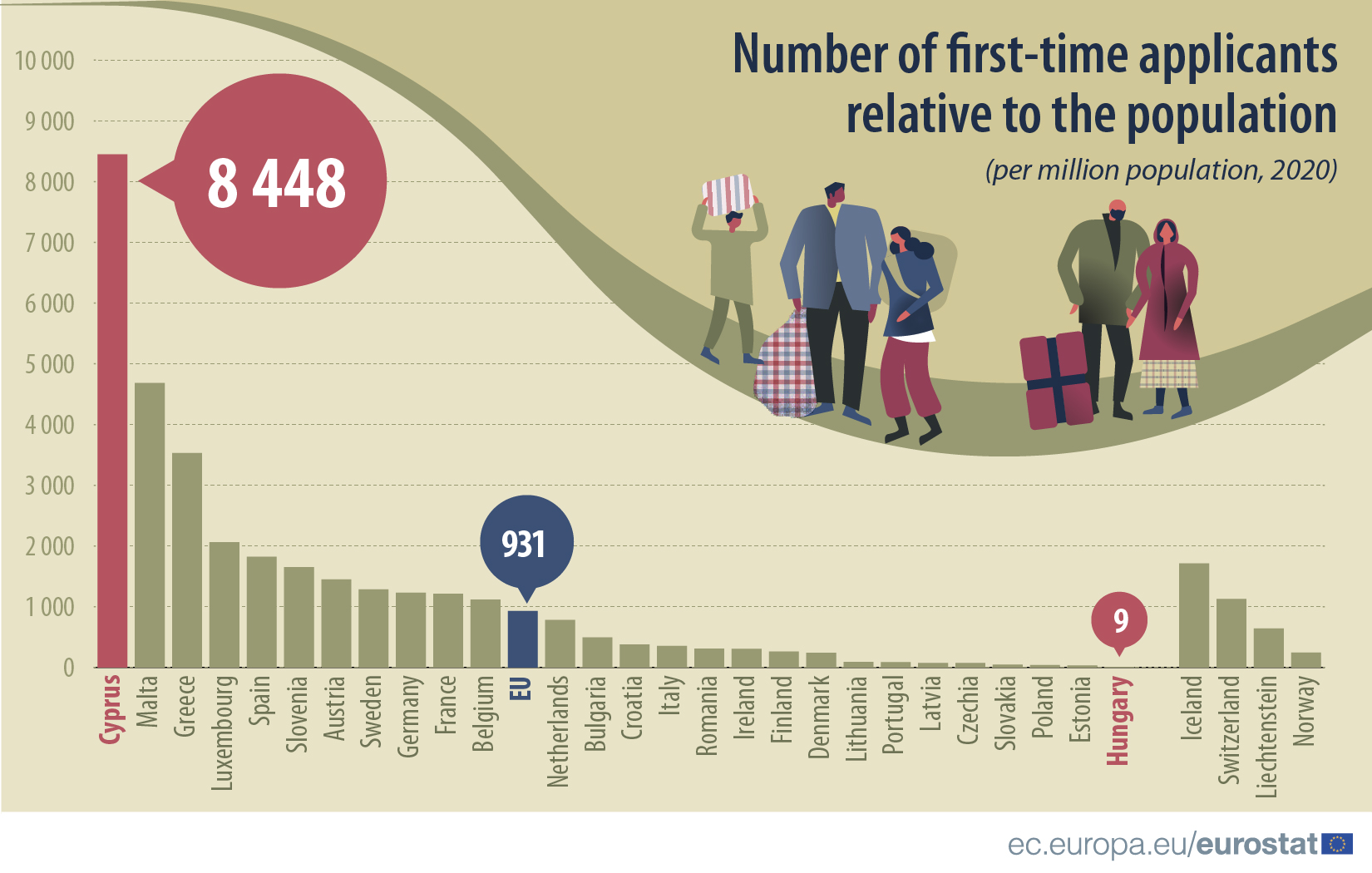In 2020, 416 600 first-time asylum applicants applied for international protection in the EU Member States, down by 34% compared with 2019 (631 300) and by 21% compared to the level recorded in 2014 (530 600), before the peaks of 2015 and 2016.
This information comes from data on asylum applicants recently published by Eurostat.
Source dataset: migr_asyappctza
Syrian, Afghan, Venezuelan and Colombian – main citizenships of asylum applicants
Syrians, Afghans, Venezuelans and Colombians lodged the most applications for asylum, together accounting for 40% of all first-applicants in the EU Member States in 2020.
Syrian (63 500 first-time applicants, or 15% of the total number of first-time applicants) was the main citizenship of asylum seekers in the EU Member States, continuing the trend observed since 2013. Over half of the Syrians lodged their application in Germany.
Afghan (44 200, or 11% of the EU total) was the second main citizenship for the third year in a row. Around one quarter of all Afghan applications were lodged in Greece and France each.
Venezuelan citizenship (30 300, 7% of the EU total) ranked third as was the case in 2019. Over 90% of Venezuelans sought asylum in Spain. Venezuelans were closely followed by Colombians (29 100 first-time applicants, 7% of the EU total), also with more than 90% of applications in Spain.
Source dataset: migr_asyappctza
1 in 4 applied for asylum in Germany
With 102 500 first-time applicants registered in 2020, Germany accounted for one quarter of all first-time applicants in the EU. It was closely followed by Spain (86 400, or 21%) and France (81 800, or 20%), ahead of Greece (37 900, or 9%) and Italy (21 200, or 5%). These five Member States together accounted for 80% of all first-time applicants in the EU.
Highest number of first-time applicants relative to the population in Cyprus, lowest in Hungary
Compared to the population of each Member State, the highest number of registered first-time applicants in 2020 was recorded in Cyprus (8 448 first-time applicants per million population), ahead of Malta (4 686) and Greece (3 532).
In contrast, the lowest numbers were recorded in Hungary (9 first-time applicants per million population), followed by Estonia (35), Poland (40) and Slovakia (49).
In 2020, in the EU as a whole, there were 931 first-time asylum applicants per million population.
For more information:
- Application for international protection means an application for international protection as defined in the Art. 2(h) of Directive 2011/95/EU, i.e. including requests for refugee status or for subsidiary protection status, irrespective of whether the application was lodged on arrival at the border, or from inside the country, and irrespective of whether the person entered the territory legally (e.g. as a tourist) or illegally.
- First-time asylum applicant/seeker means a person having submitted an application for international protection or having been included in such application as a family member, for the first-time. Applications submitted by persons who are subsequently found to be a subject of a Dublin procedure are included in the statistics on first-time asylum applicants if such persons are also a subject of first asylum application. A person can be recorded as first-time applicant only if he or she had never applied for international protection in the reporting country in the past, irrespective of the fact that he or she is found to have applied in another Member State of the European Union.
- Eurostat Statistics Explained article on asylum quarterly data
- Eurostat Statistics Explained article on asylum annual data
- Eurostat database on asylum and managed migration
- Eurostat interactive infographic on asylum applicants in 2020
To contact us, please visit our User Support page.
For press queries, please contact our Media Support.




